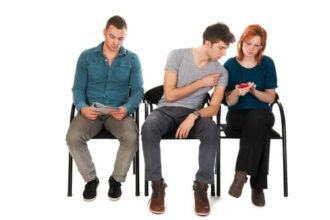
If you’re in the luckiest one per cent of humanity, you owe it to the rest of humanity to think about the other 99 per cent.― Warren Buffett

If you’re in the luckiest one per cent of humanity, you owe it to the rest of humanity to think about the other 99 per cent.― Warren Buffett
My friend Barb is 58 years old. She was laid off last December by the bank in New York City where she worked. Barb lives in northern New Jersey and has been unable to find full-time work in the 10 months since. She works in a pet store and does any odd job; she works seven days a week just to pay her rent. She is often overwhelmed with anxiety about being evicted. She has no health care coverage and is absolutely terrified.
October 1 was not a national holiday. It wasn’t Barb’s birthday or her anniversary, but it was a very special day that brought her cause for celebration.
October 1 was the long-awaited date for the opening of the health insurance exchanges created by the passage of the Affordable Care Act. It is easy to forget in the tremendous noise surrounding this debate that creating access to affordable care for people without health insurance was what the ACA was all about. Denying those people even the most basic coverage sends the message that, at some level, they are expendable: Do we really believe that?
Please don’t respond by saying, “The uninsured can always go to the emergency room.” Have you ever been uninsured? Have you ever waited for hours in a crowded emergency room for care that you have delayed so long it has become a crisis? By the way, emergency care is not free. If you don’t have insurance, you are still billed for the services. Then you have to go through a long process to prove that you have no assets to pay for your care. It is fatiguing and demoralizing.
Great organizations are battling the partisan noise with reliable information and useful tools. A tremendous effort is underway by Enroll America to inform and enroll as many people as possible in the exchanges. As of September 28, the organization had over 55,000 conversations, over 3,000 events, engaged over 7,000 volunteers, and had over 178,000 interactions with consumers. Their Facebook page includes a graphic to help spread the word about open enrollment and the Get Covered America campaign.
There are many other terrific resources. Planned Parenthood has a great ACA Education Toolkit with a PowerPoint presentation with notes for the trainer and a corresponding set of handouts for the trainees. Kaiser Permanente has a series of informative videosabout aspects of the new plan that are easily linkable. They are less than a minute and a half long and there are many.
A group called the “Young Invincibles” is sponsoring a informational video contest.
Why do I mention this? All of us have friends, relatives, or colleagues who have no health insurance—even though you may not know it. The faces of the uninsured are familiar to you: They are your family, your workplace, your community.
My good friend Lou is 62 years old. She was laid off four years ago from her job with a medical device manufacturer. She rents a room by the month from an old college roommate and can pack all of her belongings in a small SUV. Fortunately, Lou lives in Massachusetts; Commonwealth Care was a life saver for her. She pays $300 a month for her coverage and makes her health insurance payments a priority. She does odd jobs while she builds a small business in elder care services.
There are millions of people in similar situations, and they deserve basic health insurance coverage while they get back on their feet. Do not send the message that these people don’t matter.
What can you do?
- Educate yourself about how the exchanges work in your state.
- Talk about insurance coverage at least once a day to someone you know. Do not assume that everyone you know is insured.
- Tweet, e-mail, share the exchange enrollment process through your networks.
I agree with Dutch author Charles de Lint, who said,
“I don’t want to live in the kind of world where we don’t look out for each other. Not just the people that are close to us, but anybody who needs a helping hand. I can’t change the way anybody else thinks, or what they choose to do, but I can do my bit.”
You can do your bit, too. Do it today.






